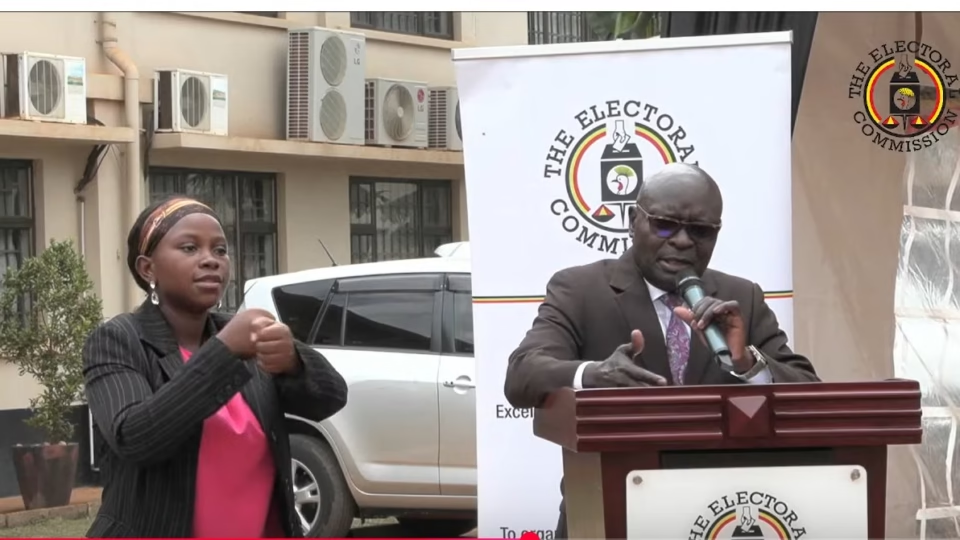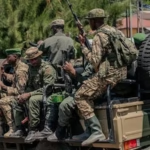The Electoral Commission has urged security agencies to respect their boundaries during elections, amid increasing public concern over the military’s role in recent electoral events.
During a press briefing in Kampala, Commission Chairperson Justice Simon Byabakama addressed the media, criticizing instances where security personnel overstepped their mandate and interfered in electoral activities.
He pointed to the recent Kawempe North by-election, where unidentified armed individuals disrupted the voting process at several polling stations. “We are left wondering whether some of those who interfered were even citizens of this country,” he remarked.
Justice Byabakama stressed that while maintaining law and order is essential, security forces must not take over responsibilities legally assigned to election officials.
“It is not the role of the military or police to manage elections. Their involvement must be strictly limited to keeping peace and order, not interfering in the electoral process,” he said.
He noted that the Electoral Commission has initiated discussions with both police and military leadership to clearly define their roles. According to Byabakama, any support provided by security forces must be requested by police in situations where law enforcement is overwhelmed—but even then, it should not compromise electoral integrity.
His comments echo similar concerns recently voiced by Internal Affairs Minister Gen. Kahinda Otafiire, who reiterated that the army has no part to play in running elections.
Despite this, Defence spokesperson Brig. Felix Kulayigye declined to comment, stating that certain media outlets are restricted from covering matters related to the defence ministry.
On the other hand, police spokesperson Fred Enanga confirmed that preparations are underway to ensure safety during upcoming elections. He emphasized the importance of non-violence and cooperation from all stakeholders.
“Our mandate is to safeguard peace and order,” Enanga said. “We expect every actor in the electoral process to operate within their limits.”
Although the law permits police to be present at polling stations under specific circumstances, critics argue that the persistent presence of military personnel has a chilling effect on the democratic process.
A court ruling in 2016 highlighted major gaps in Uganda’s electoral framework, calling for reforms to ensure credibility and transparency—recommendations that, to date, have seen little progress.
Meanwhile, civil society organizations are raising alarm over delays in the accreditation of election observers and civic educators. According to Sarah Bireete of the Centre for Constitutional Governance, some groups submitted applications up to eight months ago with no official feedback.
“Without independent observation and civic education, it’s difficult to have free and fair elections,” Bireete said.
The Electoral Commission has not publicly responded to these claims.



